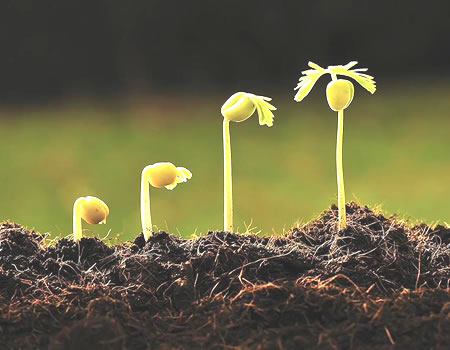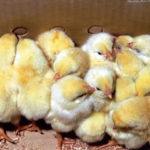AS Nigeria’s drive to boost food security and fight off insect pest, concerns about plant health is gathering momentum in the country and the Economic Community of West African States (ECOWAS) region.
Plants in the West African Sub region in the recent past have been attacked by various pests and insecticides which threatened the existence of those crops and also incurred losses for the farmers and skyrocketed the prices of those crops.
Traditionally, Nigerian farmers have been relying on pesticides for the control of various weeds, insect pests and diseases leading to high importation of products.
Therefore, the reduction in the amount of pesticides used in agricultural production has been a major issue to environmentalists, it has been established that negligence of plant health would definitely lead to food shortage especially in developing countries.
Several recommendations were made by stakeholders during the formal launch of activities to herald the International Year of Plant Health 2020.
While emphasising on addressing issues surrounding plant health, the Director General, Nigeria Agricultural Quarantine Service (NAQS), Dr Vincent Isegbe said a sum N50 billion would be needed in Nigeria annually for the next 5 years.
According to him, plant pest damages 40 per cent of global food production, while plant disease destroys 10 per cent of world crop, which means that the combine effect cuts global crop yield.
Dr Isegbe said human existence on this planet is sustained by plant functions. He noted that Plants furnishes human with fresh air and food. They (plant) produce the oxygen humans breathe and over 80 per cent of the food humans eat, and the feed we rear our livestock on.
However, Dr Isegbe said “the threat of plant pests and diseases is exacerbated by transborder trade. In these days of easier international movement and transportation, a wide range of plant pests and diseases are able to hitchhike to new frontiers. They are borne by the envelopes of infected fruits, crops, seeds and packaging containers. And once exotic pests and diseases are introduced to a new environment, they tend to establish quickly and spread rapidly; wrecking immense havoc on the local agricultural economy.
N2.2bn fraud: Court adjourns trial of Fayose till March 19
“Nigerian population is projected to reach 236 million by 2030 and 410 million by 2050, leapfrogging us to the third largest country in the world. So we have an urgent imperative to begin to build a robust plant health system that can support the anticipated population explosion”.
Calling for investment in protecting plant health, Dr Isegbe said “I have to emphasize that this call for investment in plant health in Nigeria is not a plea that should be mere tokenism. Tokenism will do little or nothing because plant health is a capital intensive affair. We need much more than the traditional miserly allocations to plant health to reposition our plant healthcare system. At the federal level, we need, at the very minimum, an annual investment of 50 billion naira annually for the next 5 years to scale our plant health infrastructure to the proportion of our immediate needs.
“Our investment in plant health will be an investment in social security. It will enable us combat hunger, malnutrition and poverty. With healthy plants, there will be food for all; everyone will be adequately nourished; the income and quality of life of farming households will rise; and more people will find employment in spin-off activities across the value chain”
He further stated that plant pests and diseases damages crops and may cause crop failure, in extreme cases. He added that their devastative impact leads to food scarcity, sharp increase in food prices and instability in the food market as well as the agro-allied industries.
However, Dr Isegbe maintained that plant pests and diseases rob farmers of income and hard work, they instigate system-wide poverty, hunger and malnutrition. He added that plant pests and diseases are equal opportunity enemies, they make victims of entire society.
The outbreak of Fall Army Worm and Tuta Absoluta in the recent past is a reference to the damage pests and disease can have on plants and the economy. The two pests almost destroyed the entire maize and Tomato respectively in West Africa and Nigeria precisely.
Governments took some drastic measures immediately to contain these pests, though the actions yielded results but the damages incurred are irreversible as farmers counted losses and economy was affected.
He further raised concern that the global population is projected to reach 9 billion by year 2050. According to him plant health is the key to meeting the tremendous challenge of feeding that large population. Without a rich base of healthy plants, the population will outstrip food production, which will throw the world into a Malthusian crisis.
“In the very least, we have to improve our capacity to feed ourselves on a sustainable basis. This means that we must move speedily to adopt a forward-looking plant health policy and massively invest in the upgrade and expansion of our plant health infrastructure. If we are remiss in doing the needful in the run-up to 2050, we will be setting ourselves up for a potential food crisis.
“We cannot afford to leave plant health in the back burner. We need to rethink our scant regard for plant health and make it a priority. All development and economic policies must give preeminence to plant health. In addition, the annual budgets of the federal, state and local governments should accord meaningful allocations to plant health”, he added.
The NAQS DG also revealed that the draft of Nigeria’s first ever National Pesticide Policy is almost completed.
He explained that the National Pesticide Policy will serve as the framework for regulating the use of pesticides for agricultural purposes. “Through the implementation of that Pesticide Policy, the Agency will be able to address the culture of the use of potentially toxic pesticides for the preservation of food items.
“We are also collaborating with researchers in Nigerian tertiary institutions to tackle the root cause of indiscriminate use of pesticides. We are working with notable pathologists and entomologists to develop effective, organic-based bio-degradable alternatives to synthetic pesticides”, he noted.
He said that one of the major hindrances to the export of Nigerian agricultural products is the high pesticide residues in some of the goods. Isegbe noted that the country is striving to invent biopesticides that are comparable to the chemical pesticides in effect to remove this huge impediment.
“A couple of field trials are underway in many parts of the country to confirm the suitability of some potent candidates. The reports we have received so far indicate that we have come within the inch of the threshold of success in some of the experiments”, Isegbe added.
While projecting ways to adddress pest issues, the Head of Agriculture Division of ECOWAS Commission in Abuja, Mr Ernest Aubee said at the regional level, ECOWAS has developed a Fruit Fly project to see ways of addressing pests and disease ravaging fruits in the region.
He said the Fruit Fly has made it difficult for the farmers in the ECOWAS region to export their fruits to the European market. Aubee said the European Union and ECOWAS embarked on a partnership to train some farmers in the region on data collation in order to address the challenge.
Expressing the concern of the ECOWAS on plant health, Mr Aubee said ECOWAS has been working hard on t tackle some of these plant disease which include Fall Army Worm, Fruit Fly and other pests and insects attacking plants in the Sub region.
“The ECOWAS commission is concerned about the impact of pest on crops, that is why it has prepared a project called the Fruit Fly project. Fruit fly is an insect that attacks fruits especially mangoes, and when it infests mangoes and other fruit crops, it destroys the quality of fruit and as a result, you will not be able to export it to Europe or to regional markets in the ECOWAS space because there are strict conditions as far as the marketing of mangoes and other fruits are concerned in international trade, so fruit fly is a very dangerous pest.
“So the ECOWAS commission with the support of the European Union developed a Fruit Fly project which is covering all the 15 member states of ECOWAS in clouding Nigeria. We have been working on addressing problem of pest and disease in West Africa agriculture.
“Another area that ECOWAS commission has been working very hard on is this problem of Fall Army Worm, this is another pest that is affecting crops in West Africa, and we also have a project to address this particular pest to contain it because it is affecting our cereal crops like Maize in particular, there is a lot of damage, as a Commission, we are very much concerned about the impact, the damages that pest and disease cause to our agricultural commodities”, Aubee said.
Meanwhile, Mr Aubee said at the ECOWAS level, there is a regulation guiding the use of chemical pesticides to mitigate the dangerous effects it could have on the environment and humans.
“In the ECOWAS, we have regulations that determines the use of pesticides. Pesticides are good if they are used within certain parameters, but when they are over used, when you use the wrong chemicals it can have a negative effect on agriculture itself, it can have a negative effect on the environment, and also it can have a negative effect on human health, so we are very conscious of that.
“We have an ECOWAS pesticide regulations which gives guidelines on how to use pesticides because want to misuse it, we want to use it properly to help boost production and productivity, so we are very much conscious of that.
“There are other forms of pesticides like bio-pesticides, but those type of pesticides are expensive, and also they are not very wide spread, so it will take sometime for us to look for alternatives to inorganic pest, and the alternative is organic”, Aubee added.
While explaining the ECOWAS Fruit Fly regional project, a trainer, Dr Kemo Badji who trains those who would in turn train other farmers on data collation and analysis of fruit fly in the 15 ECOWAS member states, said it would help farmers understand collation of data properly.
He said: “It’s a 5 day training Workshop where participants are given baselines approach on how the system be implemented, and how they should collate the data, how they can send the data to the ECOWAS Fruit Fly data base, and from there, they are able to make all the different analysis to monitor the different flies that are attacking mango.
On how it works, Dr Badji explained “when you want to monitor something to see activities of pest, you have to locate where it is, you have to number its population to understand whether the population is high that can attack and destroy your crops, so they will be collating the biodata which comes from the population of the flies, the Fly species, and they also collate data from the vegetative state of the mango within the orchard.
“So, we have taken a sample of the whole mango systems in Nigeria and that sample will be monitored weekly, out from that, we will also be monitoring the weather, because living organisms behavior is always being adapted to weather conditions, so if the weather is good, them pest will stay there if the weather is bad, then they will move to better condition, so they will also monitor the climate condition which is temperature, humidity, rain so that we can also make analysis to see whether the pest will stay or the pest will go away because it will not like the harsh condition”.






